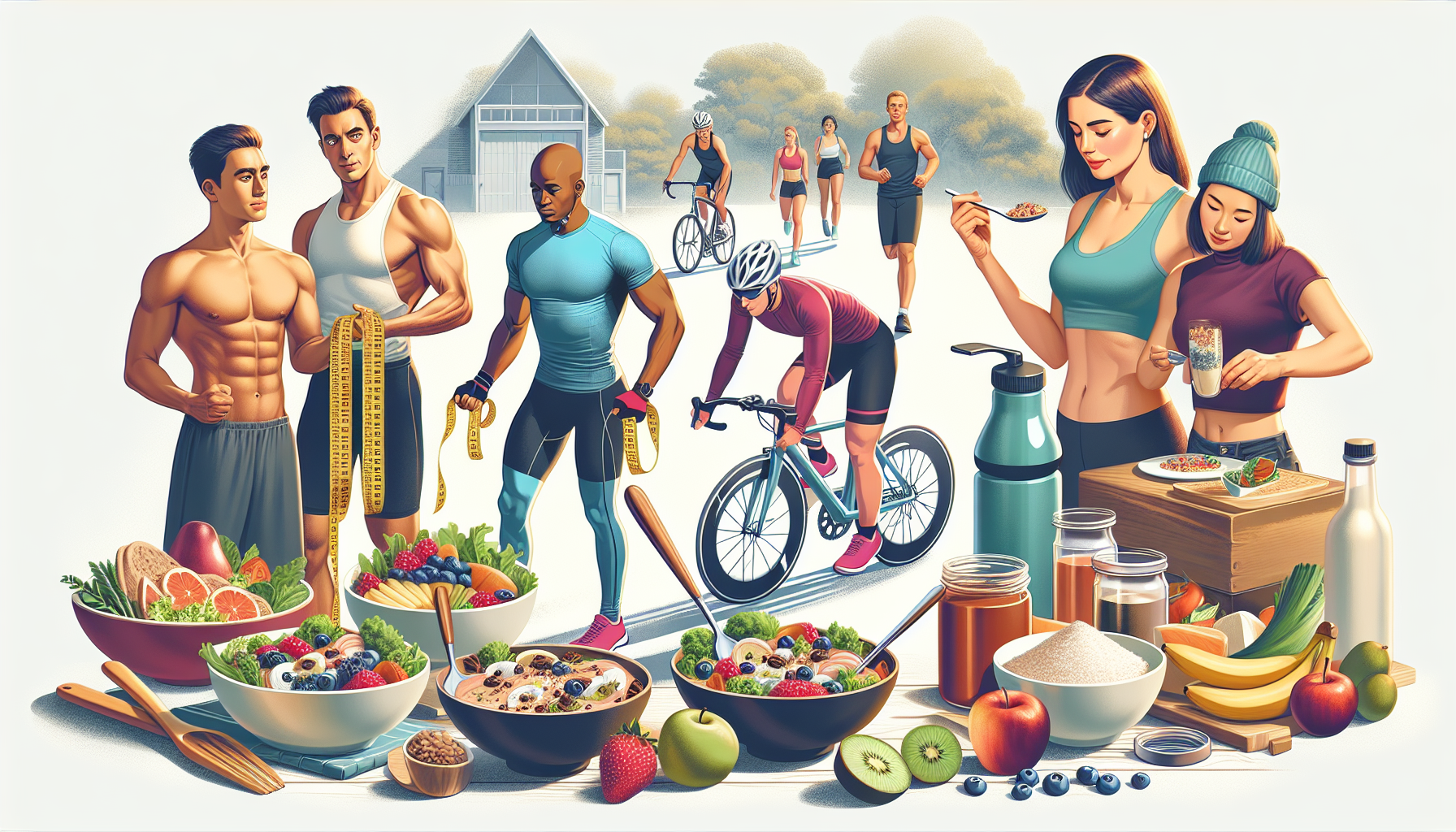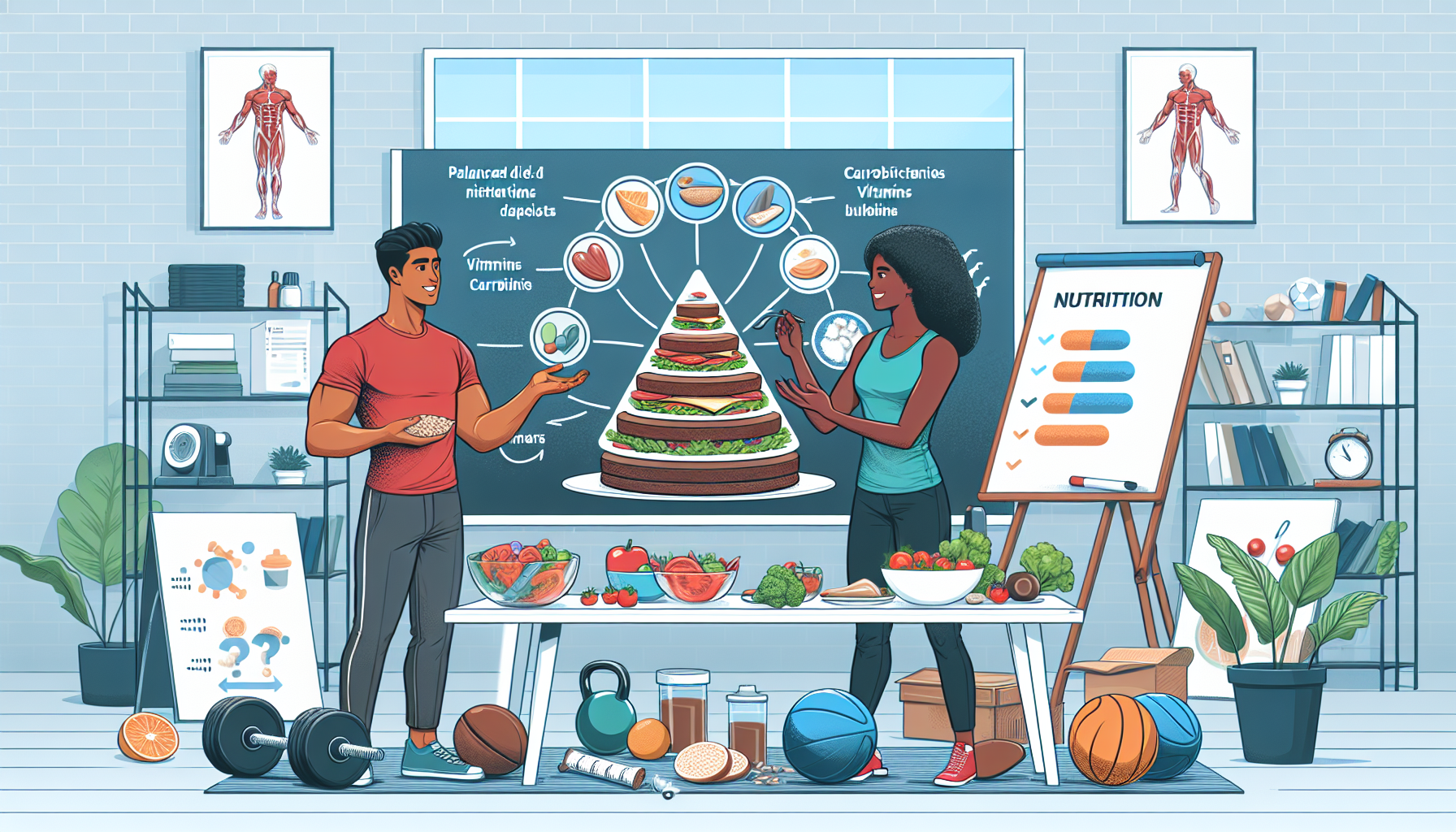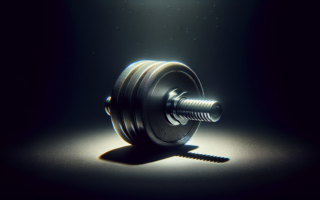Are you looking to enhance your athletic performance while also improving your overall health? Look no further! In this article, we will be exploring some basic nutrition tips specifically tailored for athletes like yourself. By incorporating these tips into your daily routine, you can boost your energy levels, optimize your recovery, and achieve your fitness goals. So, let’s dive in and discover these valuable insights that will benefit both you and your body!
Importance of Nutrition for Athletic Performance
When it comes to athletic performance, nutrition plays a crucial role in fueling your body for optimal performance, enhancing recovery and injury prevention, improving endurance and stamina, building lean muscle mass, and enhancing mental focus and concentration. By paying attention to your nutritional needs, you can take your athletic performance to the next level.
Fueling the Body for Optimal Performance
To perform at your best, you need to fuel your body with the right nutrients. This includes consuming an adequate amount of macronutrients such as carbohydrates, proteins, and fats. Carbohydrates are the primary source of energy for your muscles, so it’s important to incorporate them into your diet. Proteins are necessary for muscle repair and growth, while fats provide essential fatty acids and help with hormone production.

Enhancing Recovery and Injury Prevention
Proper nutrition plays a crucial role in enhancing recovery and preventing injuries. Consuming a balanced diet that includes a variety of micronutrients such as vitamins, minerals, and antioxidants can help support your body’s natural healing processes. These nutrients support tissue repair, reduce inflammation, and strengthen the immune system, all of which contribute to faster recovery and lower risk of injuries.
Improving Endurance and Stamina
Endurance and stamina are vital for athletes, and nutrition plays a key role in improving these aspects of athletic performance. Carbohydrates are the main source of fuel for endurance activities, so it’s important to consume an adequate amount of carbohydrates before and during prolonged exercise sessions. Additionally, staying hydrated and replenishing electrolytes are crucial for maintaining endurance and stamina during intense workouts or competitions.

Building Lean Muscle Mass
For athletes looking to increase muscle mass, proper nutrition is essential. Consuming sufficient protein is key to supporting muscle growth and repair. Aim to include lean sources of protein such as chicken, fish, tofu, and beans in your diet. It’s also important to consume enough calories to provide your body with the energy it needs for muscle-building activities.
Enhancing Mental Focus and Concentration
Nutrition not only impacts your physical performance but also your mental performance. Certain nutrients, such as omega-3 fatty acids and antioxidants, have been linked to improved cognitive function and mental focus. Including foods rich in these nutrients, such as fatty fish, nuts, seeds, berries, and leafy greens, can help enhance your mental clarity and concentration during training or competitions.

Macronutrients for Athletic Performance
Carbohydrates
Carbohydrates are the body’s primary source of energy, making them crucial for athletic performance. Opt for complex carbohydrates such as whole grains, fruits, and vegetables, as they provide a steady release of energy. It’s also important to consume carbohydrates before and during exercise to replenish glycogen stores and maintain performance.
Proteins
Proteins are essential for muscle repair and growth. Aim to consume a variety of protein sources, including lean meats, poultry, fish, eggs, dairy products, and plant-based options such as tofu and legumes. Distribute your protein intake evenly throughout the day to optimize muscle recovery and protein synthesis.
Fats
While often overlooked, healthy fats are essential for optimal athletic performance. Include sources of unsaturated fats, such as avocados, nuts, seeds, and olive oil, in your diet. These fats provide essential fatty acids that support hormone production and reduce inflammation.
Micronutrients to Support Athletic Performance
Vitamins
Vitamins play a crucial role in various metabolic processes and can have a significant impact on athletic performance. B vitamins, in particular, support energy production and red blood cell formation. Vitamin C is important for collagen synthesis, which helps with tissue repair. Ensure you consume a balanced diet rich in fruits, vegetables, whole grains, and lean proteins to meet your vitamin needs.
Minerals
Minerals such as calcium, iron, zinc, and magnesium are essential for athletes. Calcium supports bone health, iron is necessary for oxygen transport, zinc plays a role in immune function and wound healing, and magnesium is involved in muscle contractions and energy production. Incorporate mineral-rich foods like dairy products, lean meats, whole grains, and leafy greens into your diet.
Antioxidants
Antioxidants help to combat oxidative stress caused by intense exercise. This stress can lead to muscle damage and inflammation. Include foods rich in antioxidants, such as berries, dark chocolate, green tea, and colorful fruits and vegetables, in your diet to support your body’s natural defense mechanisms.

Hydration for Optimal Athletic Performance
The Importance of Hydration
Hydration is essential for optimal athletic performance. Even mild dehydration can negatively impact your physical and mental performance. Adequate hydration helps regulate body temperature, maintain blood volume, and transport nutrients to your muscles. It’s important to prioritize hydration throughout the day, not just during workouts.
Recommended Fluid Intake
The amount of fluid you need to consume can vary depending on factors such as climate, intensity of exercise, and individual sweat rate. As a general guideline, aim to drink at least 8 cups (64 ounces) of fluid per day, and increase this amount during exercise. Monitor your urine color to ensure you are adequately hydrated – it should be pale yellow.
Pre and Post-Workout Hydration Strategies
To optimize your performance, it’s essential to hydrate before, during, and after workouts. Drink about 16 to 20 ounces of fluid two to three hours before exercise and another 8 to 10 ounces 10 to 20 minutes beforehand. During exercise, aim to drink 7 to 10 ounces of fluid every 10 to 20 minutes. Finally, after your workout, replenish your fluid loss by consuming 16 to 24 ounces of fluid for every pound lost during exercise.
Pre-Workout Nutrition
Eating for Energy
Your pre-workout nutrition can significantly impact your energy levels during exercise. Focus on consuming a balanced meal that includes complex carbohydrates, lean proteins, and healthy fats. Carbohydrates provide quick energy, proteins support muscle repair, and fats provide sustained energy. Aim to consume this meal about two to three hours before exercising to allow for proper digestion.
Timing of Pre-Workout Meal
The timing of your pre-workout meal is crucial to provide your body with enough energy for the upcoming exercise session. Eating too close to your workout may result in discomfort during exercise, while eating too far in advance may leave you feeling hungry. Aim to consume your pre-workout meal two to three hours before exercise to strike the right balance.
Recommended Foods
For your pre-workout meal, consider incorporating foods such as whole grain toast with nut butter, Greek yogurt with fruit, a turkey sandwich on whole grain bread, or a smoothie made with banana, protein powder, and almond milk. These options provide a good mix of carbohydrates, proteins, and healthy fats to fuel your workout.
Hydration Tips
Along with your pre-workout meal, hydrating properly before exercise is essential. Drink about 16 to 20 ounces of fluid two to three hours before your workout, and another 8 to 10 ounces 10 to 20 minutes beforehand. This will ensure that you are adequately hydrated and ready to perform at your best.

Post-Workout Nutrition
Replenishing Glycogen Stores
After a workout, it’s important to replenish your glycogen stores, which are depleted during exercise. Consuming carbohydrates within 30 to 60 minutes after exercise helps maximize glycogen synthesis. Choose easily digestible carbohydrates such as fruits, rice cakes, or a sports drink to kick-start the recovery process.
Promoting Muscle Recovery
To support muscle recovery and repair, consuming an adequate amount of protein post-workout is essential. Aim to consume 20 to 30 grams of high-quality protein within an hour after exercise. Good options include lean meats, fish, eggs, dairy products, or plant-based sources such as tofu or beans.
Protein Consumption
Protein is crucial for rebuilding and repairing damaged muscle tissue. Including a source of protein in your post-workout meal or snack helps promote muscle recovery and growth. Consider options such as a protein shake, Greek yogurt with nuts and berries, or a chicken breast with roasted vegetables.
Optimal Timing
Timing is key when it comes to post-workout nutrition. Aim to consume your post-workout meal or snack within 30 to 60 minutes after exercise to take advantage of the “anabolic window” when your body is most receptive to nutrient uptake. This will help kick-start the muscle recovery process.
Liquids for Rehydration
In addition to replenishing glycogen stores and consuming protein, it’s crucial to rehydrate after exercise. Drinking fluids that contain electrolytes helps restore the electrolyte balance in your body and aid in rehydration. Consider sports drinks, coconut water, or homemade electrolyte-rich beverages to quench your thirst and support recovery.
Fueling During Endurance Events
Carbohydrate Loading
Endurance events require a focus on fueling your body with carbohydrates both before and during the event. Carbohydrate loading refers to the practice of increasing your carbohydrate intake in the days leading up to a race or long workout to maximize glycogen stores. This strategy helps delay fatigue and improve endurance performance.
Energy Gels and Sports Drinks
During prolonged endurance events, such as marathons or long-distance cycling, it’s important to consume easily digestible carbohydrates to maintain energy levels. Energy gels, sports drinks, and other sources of quick-acting carbohydrates provide readily available fuel for your muscles. Experiment with different products during training to find what works best for you.
Balancing Hydration and Caloric Intake
During endurance events, it’s crucial to balance both hydration and caloric intake. Aim to consume 7 to 10 ounces of fluid every 10 to 20 minutes to maintain proper hydration. Additionally, plan your nutrition strategy to consume carbohydrates at regular intervals to provide a steady source of energy.
Importance of Electrolytes
Endurance events often involve sweating, leading to the loss of electrolytes. Electrolytes, such as sodium, potassium, and magnesium, play a vital role in maintaining fluid balance and muscle function. Consider consuming electrolyte-rich foods or using electrolyte supplements or sports drinks to replenish these important minerals during long workouts or races.
Supplements for Athletic Performance
Understanding the Role of Supplements
Supplements can play a role in supporting athletic performance, but it’s important to understand their purpose and potential benefits. They should not replace a balanced diet but rather act as a complement to it. Supplements can help bridge nutritional gaps, support recovery, or provide specific nutrients that may be difficult to obtain solely from food.
Popular Performance-Enhancing Supplements
Some popular supplements used by athletes include protein powders, creatine, beta-alanine, BCAAs (branched-chain amino acids), and caffeine. Protein powders can help meet protein needs, creatine may enhance strength and power, beta-alanine can increase muscle endurance, BCAAs support muscle recovery, and caffeine may improve focus and performance.
Caution and Considerations
While supplements can have potential benefits, it’s important to exercise caution and consider individual needs and potential side effects. Avoid relying solely on supplements and prioritize a balanced diet. Be aware of any banned substances in your sport and ensure the supplements you take are trusted and tested for quality and safety.
Consulting a Healthcare Professional
Before starting any new supplement regimen, it’s advisable to consult with a healthcare professional, such as a registered dietitian or sports medicine specialist. They can assess your specific needs, guide you in selecting supplements if necessary, and ensure they align with your overall health and athletic goals.
Creating a Balanced Meal Plan
Calorie Requirements
To create a balanced meal plan, it’s important to determine your calorie requirements based on your individual needs and goals. Factors such as age, gender, weight, height, activity level, and athletic performance goals can affect your calorie needs. Consult with a registered dietitian who specializes in sports nutrition to determine your personalized calorie requirements.
Individual Macronutrient Ratios
Once you have determined your calorie requirements, the next step is to allocate them among the macronutrients – carbohydrates, proteins, and fats – in the appropriate ratios. The specific ratios may vary depending on individual goals, such as building muscle mass or improving endurance. A sports dietitian can help you determine the optimal macronutrient ratios for your goals.
Meal Timing and Frequency
In addition to macronutrient ratios, meal timing and frequency are important aspects of a balanced meal plan. Aim to eat regularly throughout the day, ideally every three to four hours, to provide your body with a steady supply of nutrients. Ensure you eat a balanced meal or snack that contains all three macronutrients at each feeding.
Healthy and Nutrient-Dense Food Choices
When creating your meal plan, focus on choosing nutrient-dense foods that provide a variety of vitamins, minerals, and other essential nutrients. Include plenty of fruits, vegetables, whole grains, lean proteins, and healthy fats in your diet. These foods will provide the necessary fuel and nutrients to support your athletic performance.
The Role of Rest and Recovery
Quality Sleep and Athletic Performance
Rest and recovery are crucial aspects of athletic performance that are often overlooked. Quality sleep plays a significant role in supporting physical and mental recovery. Aim for seven to nine hours of uninterrupted sleep each night to ensure optimal restoration and repair of the body.
Muscle Repair and Regeneration
During rest and recovery, your muscles undergo repair and regeneration. Adequate nutrition, particularly the consumption of high-quality protein, is essential to support this process. Ensure that your diet includes sufficient protein sources to provide the amino acids necessary for muscle repair and recovery.
Relaxation Techniques
In addition to sleep, incorporating relaxation techniques into your routine can help optimize rest and recovery. Techniques such as deep breathing, meditation, yoga, or gentle stretching can help reduce stress, promote relaxation, and enhance overall well-being. These practices can contribute to improved athletic performance and mental focus.
Importance of Rest Days
Rest days are equally important as training days. They allow your body to recover from intense workouts, reduce the risk of overtraining, and help prevent injuries. On rest days, engage in light, low-impact activities or focus on relaxation techniques to actively promote recovery.
By understanding the importance of nutrition and incorporating these tips into your athletic routine, you can optimize your performance, enhance recovery, and achieve your athletic goals. Remember to consult with a healthcare professional or registered dietitian to develop an individualized nutrition plan that suits your specific needs. With the right fuel and proper care, your athletic potential will soar.



